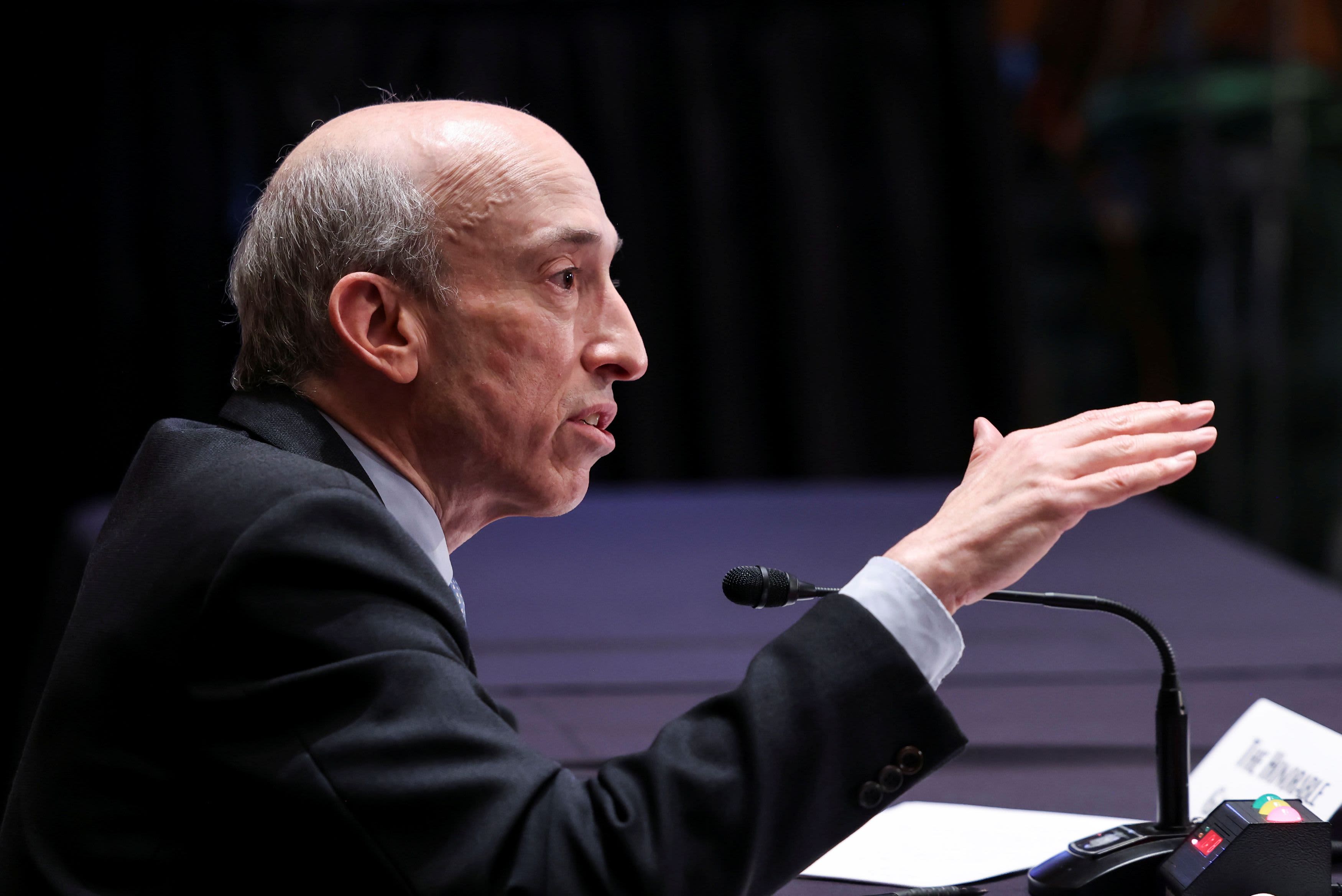
U.S. Securities and Exchange Commission (SEC) Chair Gary Gensler testifies before a Senate Banking, Housing, and Urban Affairs Committee oversight hearing on the SEC on Capitol Hill in Washington, September 14, 2021.
Evelyn Hockstein | Pool | Reuters
Securities and Exchange Commission Chairman Gary Gensler on Monday said that Wall Street’s top regulator is gearing up to introduce rules that will force more transparency and competition from the country’s largest private companies and the private firms that fund them.
Gensler, who spoke with CNBC’s “Squawk Box,” said he wants to ensure large private companies and private equity firms — many of which count public pension funds among their investors — are disclosing enough information to stakeholders.
“We’ve long had both public companies and private companies. And we’ve said, if you want to tap into the broad public [for capital], there’s a basic bargain: Share information, disclose information that’s important to that investor,” Gensler said.
“We are going to take up, again, a project around driving greater competition and efficiency in the private funds space,” he continued. “These are the funds that raise money — the total number is about $17 trillion — raise money from pension funds and also from wealthy individuals.”
Any effort to require more financial and operational disclosures from private companies is likely to meet opposition from young companies and start-ups born in Silicon Valley.
Investments by venture capital funds and private equity firms are often a key source of funding for young companies looking to build production and launch their products on a national or global level.
In prior decades, private capital could not fund companies like public markets could, and regulators offered younger companies greater privacy over their business metrics in an effort to encourage innovation. In theory, as those companies matured, they would eventually tap public markets and disclose key financial details like earnings, revenues business outlook and executive pay.
But with private funds managing some $17 trillion, many companies are delaying their entry to public markets and sometimes use an initial public offering as an opportunity for its wealthiest investors to cash out.
A representative for the SEC did not respond to CNBC’s request for additional details on the agency’s plan.




